Dr. Marku’s Revelations of Italian Diplomatic Documents on Albanians During 1912 By Rafaela Prifti


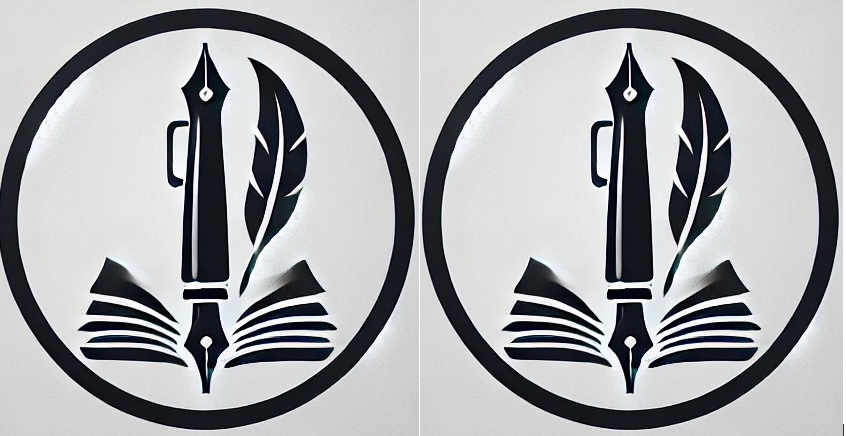
Nga politika shqiptare ka dalë një pinjolli i ri, Adriatik Lapaj. Ky ka thirrur të shtunën një takim me shqiptarë këtu në Michigan. Unë nuk jam i informuar mjaftueshem për një gjykim të plotë për dhe në pamundësi për të marrë pjesë në takimin e tij, po e pyes nga këtu ne FB:
1-Kush e financon Adriatik Lapajn?
E kemi parë Adriatikun në një tur disi të befasishëm në Greqi, Itali, Gjermani e Europë, me ekip të gjerë që e shoqërojnë. Pra Adriatiku është në një fushatë të mirfilltë, dhe dihet së fushatat janë shumë të kushtueshme. Edhe sikur ky tur të ishte në Shqipëri, unë do të pyesja: ku i merr paratë ky njeri i ri në moshë? Si e përballon jetësën kur nuk punon? Kush ja paguan shpenzimet e jetesës gjatë gjithë kësaj kohe që merret me fushatë? Kush ja paguan reklamat? Po shoqëruesit kush ja paguan. Po sallat që rezervon kush ja paguan?
Pyetja katërfishohet momentin qe Adriatiku fillon udhëtimet politike në Evropë dhe 6-fishohet kur vjen në amerikë. Them gjashtëfishohet mbasi shpenzimet janë gjashtë herë më të mëdha. Vetëm një biletë avioni në këtë kohë festash kushton rreth $1800. Po hotelet, po restorantet, po sallat moderne të takimeve. Po të shumëzohen me numrin e shoqëruesve del një kosto shumë e lartë, që më bën kurioz të di se si e paguan Adriatik Lapaj. Nuk kam parë as Fundraiser të organizohen për fushatëne tij, sikurse ndodh rëndom në kohë fushatash.
Mbaj mend Erion Veliaj kur filloi MJAFT-in të thoshte që e financonte e ëma. Po Adriatikun kush e financon?
2-Kujt i shërben Adriatik Lapaj?
“Shqipëria Bëhet” është parti e majtë apo e djathtë?
Në fakt Adriatku ka thënë se nuk është parti por është lëvizje. Kjo lëvizje kujt i shërben të majtës apo të djathtës, qeverisë apo opozitës? Adriatiku ka deklaruar se është opozitar, por jam befasuar nga fakti se ai sulmon edhe opozitën. Pra është e sigurtë se opozitës nuk i shërben. Nëse nuk i shërben opozitës, atëherë kujt I shërben?
Edhe motoja e Erion Velise ishte “Mjaft me politikën e vjetër”, por Erioni na doli nje lapangjoz i Rames.
3-A do të krijojë një parti të re para zgjedhjeve Adriatik Lapaj?
Mua personalisht më pëlqen sistemi politik dy partiak sikurse është në Amerikë apo Angli dhe vende të zhvilluara. Pra, majtas ose djathtas, liberal ose konservator. Këto partitë e qendrës, as andej as këndej, janë përdorur shpesh si “pyka” dhe kalojnë herë me njërën dhe herë me tjetrën parti duke i dhënë pushtetin një partie që nuk e siguron shumicën e mjaftueshme. LSI-ja e ka luajtur këtë rol më së miri. LSI-ja solli në pushtet diktatorin Rama. Të paktën, LSI-në apo Partia e Lirisë ka identitet, e dimë se është parti e majtë, produkt i PS-së. Po “Shqipëria Bëhet” a do të bëhet parti? A ka kjo lëvizje një program, dhe cilat shtresa përfaqëson nëse bëhet parti, majtas apo djathtas. Përse nuk e shpjegon këtë Adriatik Lapaj?
Se nëse edhe Adriatiku na del si Erioni, atëherë “Shqipëria Bëhet” çfarë: Lopë për ta mjelur, arë për ta vjelur apo bashki për ta vjellur?!
U përkujtua me madhështi në Michigan Dom Prenk Ndrevashaj
Në Qendrën Kulturore të Kishës Zoja Pajtore në Southfield, Miçigan me nderime dhe respekt të lartë u përkujtua themeluesi i komunitetit katolik shqiptar dhe Famullisë Zoja Pajtore e Shqiptarëve, Primus Prenk Ndrevashaj, me rastin e 20 Vjetorit te kalimit në amshim.
Komisioni organizativ i kryesuar nga Dr. Gjeka Gjelaj, z. Valentin Lumaj dhe z. Pjerin Prekaj kishin shpallur me kohë organizimin e aktiviteteve të ndryshme për këtë përvjetor të cilat përmblidhnin një Meshë Shënjte, një Seminar Përkujtimor dhe një Darkë Solemne.
Aktivitetetet Dom Prenkën më 8 dhjetor, 2024 përkuan edhe me 8 dhjetorin 1990 të demostratave antikomuniste. Kujtoj se Dom Prenk Ndrevashaj ka qenë i përndjekur, i burgosur, i arratisur dhe i mbijetuar i terrorit komunist shqiptar.
Mesha Shenjte filloi në orën 12:30 pm dhe u drejtua nga famullitari i Kishës së Shën Palit dom Fred Kalaj dhe Dom Dino Çekrezi. Kishin ardhur enkas për këtë rast nga Shqipëria drejtori i Radio-Marisë në Shkodër, dom Prek Lazri dhe Provinciali i Rendit Françeskan, Shkodër Mali i Zi, Patër Pashko Gojçaj. Asistoi po ashtu edhe xhakoni Aleksandër Stanaj.
Si jashtë zakonisht, kisha ishte e mbushur plot me besimtarë që ndoqën Meshën Shenjte që ju kushtua shpirtit të Dom Prenk Ndrevashës.
Fill mbas meshës, në oren 2 pm, besmtarët dhe adhuruesit e Dom Prenk Ndrevashës u mblodhën në sallën e Qendrës Kulturore Nënë Tereza, ku ishte pregatitur një drekë për të gjithë të pranishmit. Salla ishte dekoruar me ngjyrat kombëtare shqiptare. Në qendër të skenës një banderolë e madhe që shpallte seminarin, ndërsa në një anë të sallës ishte zbukuruar me ornamente të ndryshme dhe një fotografi e madhe e dom Prenkës.
Seminari Përkujtimor filloi punimet në orën 2:45 pm sipas programit të parapregatitur për këtë rast. Seminari u drejtua nga çifti Valentin dhe Merushe Lumaj, aktivistë të Kishës Zoja Pajtore.
Në fjalën e hapjes z. Valentin Lumaj ndër të tjera tha se janë shumë pak ata njerëz që jo vetëm me jetën por edhe me vdekjen e tyre sjellin jetë e dritë dhe bahen frymëzim për gjeneratat e ardhshme. Një ndër ta ishte Dom Prenka. Ai na la si trashëgim kujtimet dhe veprën e tij që asht sot udhëzim për ne dhe kishat tona se si të jetojmë me Zotin dhe me njëri tjetrin, si të drejtojmë komunitetin, si të rezistojmë në ditë të vështira, si të gëzojmë në ditë të mira. Ai ftoi të pranishmit që në fjalën e tyre të sillnin kujtimet më te mira dhe pozitive nga njoha e tyre me dom Prenkën.
Znj. Merushe Lumaj paraqiti te ftuarit e rastit që ishin:
Provinciali i françeskan i Nunciatës Shkodër- Mal i Zi, Patër Pashko Gojçaj, drejtori i Radio-Marisë Shkodër, Dom Prek Lazri, famullitarët e Kishës Shën Palit, Dom Fred Kalaj dhe dom Xhovani Kokona, ish famullitari i Kishës Shën Palit, dom Anton Kcira, famullitari i Kishës Zoja Pajtore, Dom Dino Çekrezi, profesor Lisandri Kola, xhakoni Aleksandër Stanaj, avokat Joseph Dedvukaj, si dhe shumë persona të tjerë të nderuar të komunitetit dhe miq të Dom Prenk Ndrevashës
Famullitari i Kishës Zoja Pajtore Dom Dino Çekrezi foli për veprat e mira të dukshme dhe trashëgiminë që ka nga Dom Ndrevashaj dhe përgjegjësinë për të vazhduar misionin meshtarak në gjurmët e tij. Dom Dino gjithashtu tha një lutje dhe bekoi Seminarin.
Dom Fred Kalaj bëri një histori të gjatë të kujtimeve të tij që nga femijëria dhe shkollimi i Dom Prekës në Seminarin Jezuit, koha në burg, arratisja e deri me njohja e tij me Dom Prenkën. Dom Fredi foli për vështirësitë e jetës, të guximit, vendosmërisë dhe devotshmërisë së Dom Prenkës. Foli gjithashtu për anën bamirëse të tij duke ndihmuar për dokumentimin e rreth 10 mijë shqiptarëve.
Pater Pashko Gojçaj u ndal në fjalën e tij në kujtimet që nga njohja me dom Prenkën i cili dha gjithçka për t’u bërë meshtar, jeta nuk e kurseu, u përballua me shumë probleme dhe vështirësi, por me ndihmën e Zotit të gjitha i përballoi.
Dom Prek Lazri në fjalën e tij tha se Dom Prenka kishte lënë mbresa të jashtëzakonshme në jëtën e tij dhe suksesin e Radio-Marisë ja dedikoi kontributit të Dom Prek Ndrevashës.
Moderatori Valentin Lumaj lexoi një letër përshëndetje të dërguar nga shkrimtari Visar Zhiti, që titullohej “Para ikonës së Dom Prenk Ndrevashës” dhe fillonte me rreshtat: “Do të doja të sillja fjalët e nderimit tim ashtu si përuljen time para ikonës plot dritë të Dom Prenk Ndrevashaj te ju, pranë kishës “Pajtorja e shqiptarëve”, që ai themeloi në Miçigan…”.
Xhakoni Aleksandër Stanaj solli në kujtesë mbështetjen dhe shtysën që dom Prenka i dha atij në rrugëtimin e tij për ti shërbyer Kishës. Po ashtu ai falenderoi të afërmin e dom Prenkës, Ndrek Gurin për ndihmën qe i kishte dhënë.
Profesori i Universitetit të Miçiganit, Lisandri Kola në ligjëratën e tij përshkroi artin letrar dhe poetik të Dom Prenk Ndrevashës. Ai theksoi se vepra letrare e dom Prenkës asht e një rëndësie kombëtare dhe shtroi propozimin për organizimin, inventarizimin dhe dixhitalizimin e të gjitha materialeve arkivore të Dom Prenkës të ruajtura në Kishën e Zojës Pajtore.
Avokati i njohur shqiptar Joseph Dedvukaj solli përjetimet e tij me dom Prenkën. Ai tha se ishte dom Prenka që e motivoi të mësonte gjuhën shqipe kur i kishte thënë se “Zoti flet shqip”. Ai tha se babai i tij Shtjefën Dedvukaj dhe krejt familja e tij e kishin perkrahur dom Prenkë ne misionin e tij në Miçigan.
Gazetari dhe studiuesi Zef Përgega në fjalën e tij foli mbi korrespondencën e gjerë të Dom Prenkës me miqtë e tij. Z. Pergega lexoi dy letra këmbime origjinale të dom Prenk Ndrevashës me Imam Vehbi Ismajlin dhe baba Rexhepin..
Ndoc Lumaj në fjalën e tuj përmalluese tregoi disa kujtime të tij nga njohja e parë me dom Prenkën. Ndoc Lumaj tha se për nga vështirësitë, përkushtimi dhe pervuejtnia, Dom Prenka meriton te shpallet shenjt.
Aktivistja Huana Kurti shprehi mirënjohje ndaj Dom Prenkës për pritjen dhe ndihmën fillestare që i kishte dhënë mbas ardhjes së saj në Amerikë dhe tha se bamirësia e Dom Prenkës asht trashëgimia dhe modeli për të gjithë ne se si ti ndihmojmë njerëzit në nevojë.
Në vazhdim folën bashkëkohësit dhe adhurues të Dom Prenk Ndrevashës, Sopranoja Ermelinda Paparisto, Rita Gjelaj, Mark Gojçaj, Dom Xhovani Kokona etj.
Spikati fjala e gjatë me kujtime të jashtëzakonshme të bashkëpunëtorit të dom Prenkë Ndrevashës, Gjergj Vulaj, i cili mes lotësh solli përjetime që përmalluan të pranishmit.
Moderatorja Merushe Lumaj lexoi një pjesë nga ligjërata që kishte dërguar për këtë rast publicisti dhe miku i dom Prenkës, Frank Shkreli. Ndër të tjera z. Shkreli shkruante: “Ne sot kujtojmë Dom Prekën por, njëkohsisht, falë Dom Prekës, si udhëheqës, jo vetëm fetar, i këtij komuniteti, sot kujtojmë dhe festojmë edhe një histori të lavdishme arritjesh e suksesesh të komunitetit shqiptaro-amerikan në Detroit…”.
Dr. Gjeka Gjelaj njoftoi të pranishmit se të gjitha ligjëratat, perjetimet, historitë, shkrimet dhe punimet e kësaj dite përkujtimore do të përmblidhen në një libër që do ti kushtohet Dom Prenkës.
Moderatori Lumaj thuri tribute per Famullitarin e pensionuar Dom Ndue Gjergji, pas ardhës i Dom Prenkës, si sherbëtor i denjë i Krishtit, vizionar dhe dhe patriot, i cili e rriti dhe e zhvilloi më tej Kishen e Zojes Pajtore.
Ai shprehu mirënjohje të veçantë edhe për punën dhe kontributin e famullitarit të pensionuar Dom Anton Kcira, i cili ishte në sallë, si dhe falenderoi biznesmenin Pjetër Stanaj për ndihmën e vazhdueshme që i ka dhënë ndaj
Kishës Zoja Pajtore qysh nga koha e Dom Prenkë, së dom Ndue Gjergjit dhe vazhdon të kontribuojë.
Në përfundim z. Lumaj falenderoi Këshillin e Kishës dhe harmoninënë mes anëtërëve te tij nën drejtimin e biznesmenit Pjerin Preka, nën kryetarin Marjan Gjetja, sekretaren Viktoria Dedivanaj dhe anëtarët, Vuksan Junçaj, Fran Shkreli, Gjeka Gjelaj, Ndrec Merditaj, Lekë Pecaj, Ylli Gilaj, Ferdinand Dedaj, Luigj Nilaj, Rrok Dedivani, Zef Përgega, Kolë Burgaj, Filip Skela, Gjokë Lucaj, Ednik Toma dhe Steve Lucaj.
Seminari përfundoi me sukses të plotë punimet dhe u mbyll në orën 5:30 pm.
Në orën 7 pm dyert e Qendrës Nënë Tereza u hapën përsëri për një darkë solemne me besimtarë dhe miqtë e dom Prenk Ndrevashës. Darka u moderua me profesionalizëm nga dr. Gjeka Gjelaj dhe bashkëshortja e tij Rita Gjelaj.
Dr. Gjelaj në fjalën e tij bëri një përshkrim në detaje të jetës së vështirë por të lavdishme të dom Prenk Ndrevashës qysh nga njohja e tyre në fakultet ne Romë, më pas me ardhjen e dom Prenkës në Amerikë dhe deri në pensionimin e tij. Dr. Gjelaj tregoi të pranishmëve dëshmi dhe përjetime të patreguara më parë, që nga kushtet e vështira të jetës së dom Prenkës dhe të vetë Kishës Zoja Pajtore dhe solli dëshmi mbi tentativat për zhdukjen fizike të dom Prenkës nga sigurimi komunist shqiptar.
Znj. Rita Gjelaj solli kujtimet e saj nga njohja me Dom Prenkën, mbështetjen dhe motivimin që ai i kishte dhënë asaj në vitet e para në Amerikë. Znj. Gjelaj bëri prezantimin individual të të ftuarve të nderit të vendosur në një banket të gjerë. Ajo solli në kujtësë një nga përkrahësit dhe krahu i djathtë i dom Prenkës, Vasel Dodaj, djali i të cilit ishte i ftuar në tryezën e nderit.
Dr. Gjelaj falenderoi në veçanti besimtarin e devotshëm dhe biznesmenin Lukë Dedvukaj për kontributin e madh që ka dhënë dhe vazhdon të japë për kishën e zojës Pajtore dhe të Shën Palit.
Në emër të disa familjeve malësore Junçaj, që kanë qenë bashkëpunëtorë të Dom Prenkës dhe kanë ndihmuar në sikurimin e ndërtesës së kishës foli z. Tom Junçaj.
Në emër të familjes Dodaj, foli Gjergj Vasel Dodaj.
Në emër të bijve të Dukagjinit foli z. Cam Shkambi.
Në emër të familjes sinishtaj foli Nicholas Sinishtaj.
Përshendeti po ashtu edhe avokati Joseph Dedvukaj.
Në vazhdim u kënduan disa këngë patriotike përfshi një këngë kushtuar dom Prenk Ndrevashës dhe këngës “Na bashkoi Zoja Pajtore” me tekst të autorit Ramazan Ceka kënduar nga këngëtari Fran Lucaj.
Mbrëmja vazhdoi në biseda dhe kujtime dhe u mbydh me fotografi në grupe.
Të gjitha aktivitete në përkujtin të dom Prenk Ndrevashës u organizuan nën kujdesin e këshillave të Kishës Zoja Pajtore dhe Kishës së Shën Palit me mbështetjen financiare të miqve të Dom Prenk Ndrevashës.
Kronika nga Valentin Lumaj
10 Dhjetor 2024
Photo credits Mario Pergega
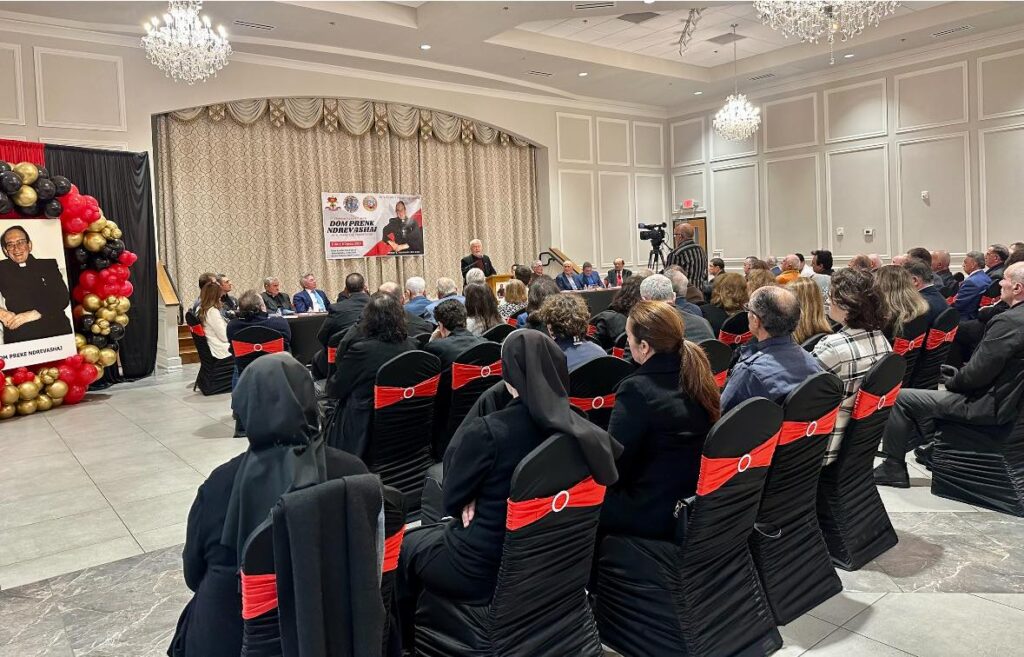
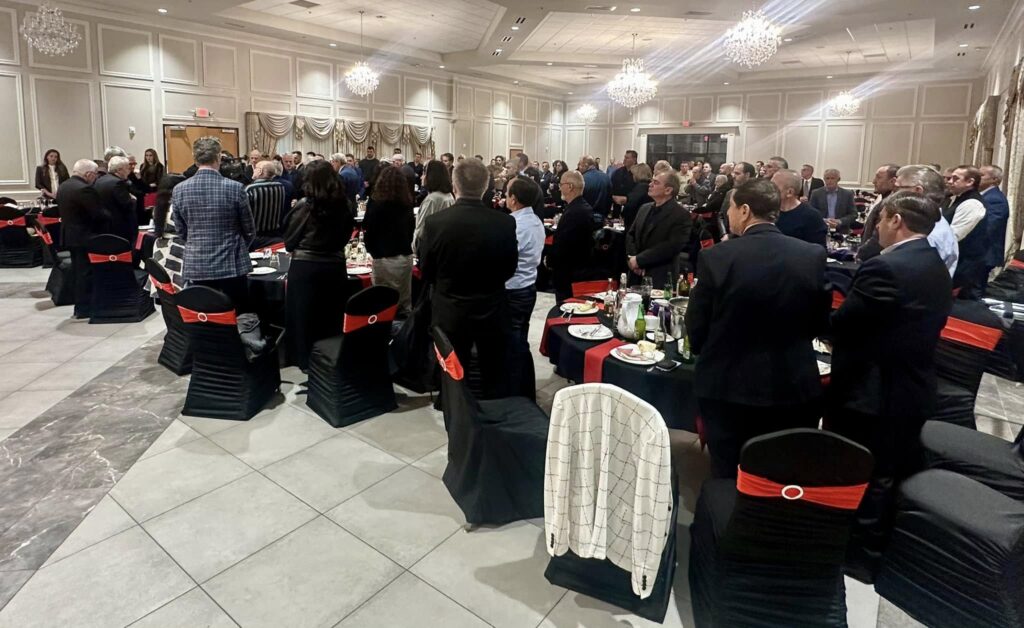
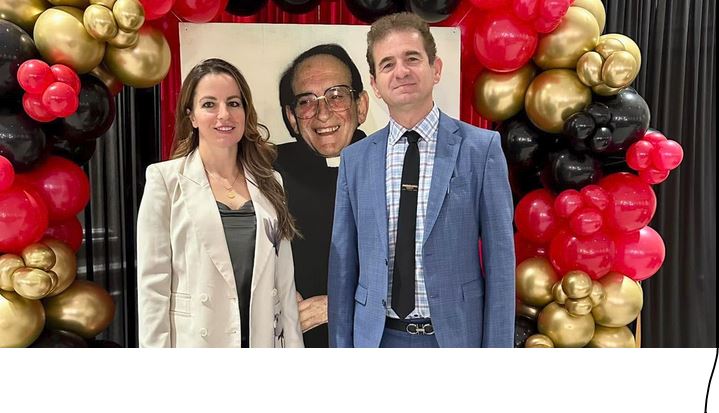
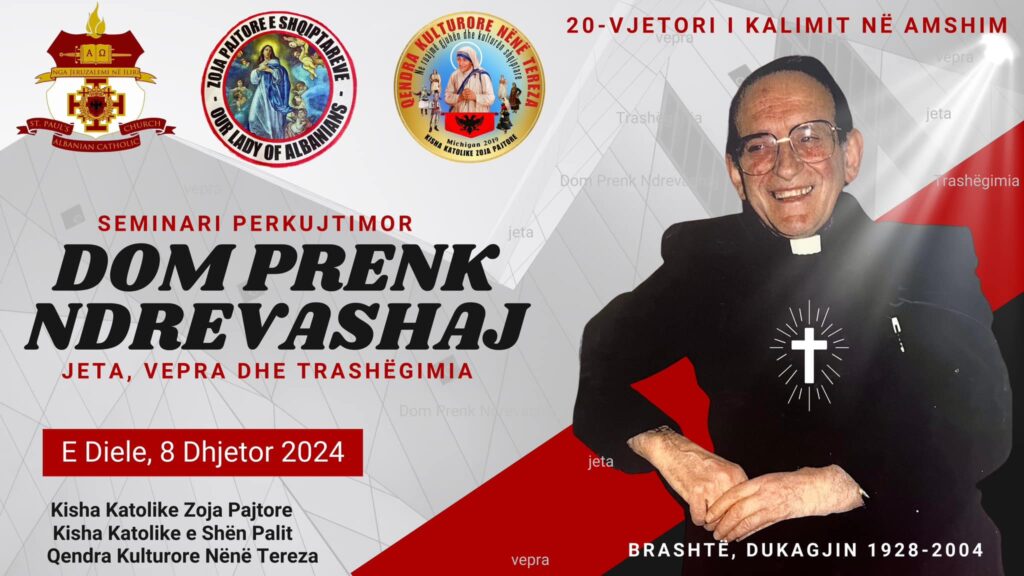
(Fjala me rastin e promovimit të librit “Porosia e Kullës” të autorit shqiptaro-amerikan nga Malësia e Madhe, Dr. Pashko Camaj, në Qendrën Nenë Tereza të Kishës Katolike shqitaro-amerikane, Zoja e Shkodrës në Nju Jork)
Përshëndetjet e mia të gjithë të pranishëmve aty të mbledhur sot në Sallën e të Madhes tonë Shën Nenë Terezës, pranë Kishës Katolike Shqiptare, “Zoja e Shkodrës”. Përshëndes dhe përgëzoj, përzemërsisht, bashk-malësorin tem, mikun, kolegun dhe autorin e librit “Porosia e Kullës”, Dr Pashko Camaj – të cilit, njëkohsisht, i kërkoi ndjesë, që në pamundësi të jem aty sot, detyrohem t’a përshëndes me këtë rast, prej së largu nga Washingtoni. Pa dashur të dukem si krahinor, më duhet të pranoj se suksesi Dr Pashkos…
“Porosia e Kullës” është titulli i librit. Dy fjalë të mëdha, dy fjalë të shenjëta – fjala: Kullë dhe fjala: Porosi, ose siç përdoret në fjalorin popullor: amaneti. Është një rrëfim autobiografik, por edhe një përvojë reale dhe aktuale shpirtërore dhe shoqërore. Është një rrugëtim, që secili prej nesh e ka berë, në rrethana tjera dhe në kohë të ndryshme. Është një tregim i cili po të heqim emrin e autorit, Dr Camaj, mund të vendoset emri i secilit prej nesh, mërgimtarë malësorë, por jo vetëm, të ardhur në Amerikë gjatë 50 e sa viteve më parë. Është një histori dhe një pasqyrë ku secili prej nesh të ardhur nga ato anë, shohim vetveten tonë, të kaluarën, të tashmen dhe të ardhmen tonë dhe të familjeve tona, por edhe të komunitetit shqiptaro-amerikan në përgjithësi. Si bashkvendas, me të njëjtën përvojë si Dr. Pashko Camaj, ky libër na ben të shikojmë thellë brenda vetes, ndoshta me mundësinë dhe dëshirën për të gjetur veten në një botë të huaj dhe për t’ju përgjigjur pyetjeve se ku ishim, ku jemi dhe ku po shkojmë – brezi ynë dhe ata që vinë pas nesh. A është një bekim, apo një mallkim, ndoshta, braktisja e Kullës dhe e trojeve tona? Ato kulla që ndër shekuj kanë ruajtur brez pas brezi identitetin shqiptar, traditat, vlerat dhe zakonet e mira të malësorëve, të cilët shpesh e kanë ndier veten si të huaj në kullat dhe në trojet e veta shekullore.
Atyre kullave të Malësisë tonë të cilat, historikisht, kanë shërbyer një rol të dyfisht, si banesa por edhe për mbrojtje nga armiqët. Këto janë pyetje që vetëm secili prej nesh, bazuar në përvojën tonë, mund t’i përgjigjemi, bazuar në përvojën dhe në rrethanat tona specifike. Nëse braktisja e kullave tona gjatë dekadave ishte një bekim apo mallkim, kjo u mbetet historianëve të ardhëshëm të vendosin. Megjithëse autori mund të ndjehet fajtor për “ mospërfilljen” e amanetit të Kullës, duke u largua nga vendlindja – ai përpiqet të justifikoj largimin nga trojet shekullore tona për një jetë më të mirë në Amerikën e largët duke cituar që në fillim një paragraf nga Testamenti i Vjetër i Biblës – që përcakton emigrimin si një fenomen botëror i shekullit të kaluar por aktual edhe sot, ndonëse aq i vjetër sa vet Bibla:
“Zoti i tha Abrahamit: Largohu nga vendi yt, nga të afërmit e tu dhe nga shtëpia e babait tënd, dhe shko në vendin që do të tregoj. Unë prej teje do të bëj një komb të madh, do të bekoj dhe do ta bëj të madh emrin tënd, dhe ti do të jesh një bekim.” Zanafilla 12:1-20
Titulli i librit, “Porosia e Kullës” e autorit Dr Pashko Camaj është në të njëjtën kohë edhe një betim dhe mund të shikohet si thirrje brezit të tanishëm dhe të ardhëshëm të malësorëve e të shqiptarëve, anë e mbanë trojeve tona në Ballkanin Perëndimor, në përgjithësi, që ata të mos barktisin “Kullat”. Por, nga ana tjetër, është edhe një betim solemn për t’i qëndruar besnik deri në fund, “Mbrojtjes së Kullës” si një gjë të shenjtë, një porosi e Kullës së të parëve!
Ky është edhe pikëqëllimi i këtij libri, sipas vet autorit: një mesazh e porosi për brezat e ardhëshëm të malësorëve dhe shqiptarëve nga të gjitha trojet, në Amerikë – ku ndonëse ëndërrat bëhen realitet – siç është edhe vet rasti i autorit, në këtë vend të ri. Ndërsa bëhen amerikanë, ata mund të ruajnë gjithnjë rrënjët e veta dhe të mos harrojnë origjinën nga vijnë. Ashtuqë nepërmjet porosisë së Kullës, malësorët dhe shqiptaro-amerikanët, në përgjithësi të mund të ruajnë trashëgiminë dhe amanetin shekullor të brezave arbërorë edhe këtu në Amerikën e largët. Në këtë
“komb të madh, do të bekoj dhe do ta bëj të madh emrin tënd, dhe ti do të jesh një bekim”, janë fjalët e Perendisë, drejtuar Abrahamit. “Largohu nga vendi yt, nga të afërmit e tu dhe nga shtëpia e babait tënd…”
Dr. Pashko: ti ke bërë zgjidhjen e duhur, prandaj mos e ndjejë veten fajtor ndaj të parëve tu por të jesh krenar për këtë vepër, me të cilën ti përshkruan historinë tënde, por që, në të vërtetë, përmban edhe historinë e secilit prej nesh, që në kohë tjera, ashtu si ti para 40-viteve, kemi ardhur në këtë “komb të madh” nga trevat shqiptare në Ballkanin Perëndimor.
Ky “komb i madh”, që është Amerika jonë e dashur, të gjithë neve me origjinë të përbashkët nga vjen edhe autori Dr Pashko Camaj, na e ka bërë të mundur që “Porosia e Kullës” të jetë një bekim për secilin prej nesh si individ dhe për ne si komunitet që aktualisht luan një rol me rëndësi në jetën dhe veprimtarinë e këtij kombi të madh, të përcaktuar, si i tillë nga Perendia – si vendi që ai na “tregojë”.
Më në fund, si rjedhim, kuptohet, vetvetiu, se sa rëndësi e vlerë ka kjo vepër për historinë tonë këtu në Shtetet e Bashkuara por edhe për amangtet dhe “Porosinë e Kullave” të Malësisë tonë të Madhe e të dashtun, për trojet shqiptare në Ballkanin Perendimor. Për të kaluarën, për të tashmen dhe për të ardhmen. “Porosia e Kullës” përkon plotësisht me botëkuptimin e shqiptarëve të cilët dikur u lidhshin dhe mbetshin aty ku kishin dhanë fjalën, d.m.th: Besën. Besa e dhenë është porosia e ruajtur e Kullës!
Duke qenë i bindur se ashtu si Arbëreshët e Italisë të cilët ruajtën për më shumë se 500-vjet porositë dhe identitetin kastriotian në dhe të huaj – ashtu edhe shqiptarët e sotëm në “tokën e premtuar” të Amerikës — me kohë dhe me kujdes e sipas rrethanave — do të mund të ruajnë “Porositë e Kullave”, duke ruajtur vlerat dhe traditat fisnike të kullave tona, jo vetëm në Malësi të Madhe dhe anë e mbanë trojeve shqiptare, por edhe këtu në botën e re — Shtetet e Bashkuara të Amerikës. Sot për sot, askund si këtu në Amerikë nuk mund të zhvillohen me sukses përpjekjet për të ruajtur vlerat dhe traditat kombëtare.
Shpresonim se me shembjen e Murit të Berlinit dhe të diktaturës së egër komuniste në Shqipëri dhe anë e mbanë trojeve shqiptare, “çeshtja shqiptare” do të merrte, më në fund, dinamika të reja përparimi e zhvillimi, në nivel kombëtar e ndërkombëtar. Kjo nuk ka ndodhur as pas 35-vjet të ashtuquajtur, tranzicion “post-komunist”. Mjerisht, kullat tona që u qëndruan me shekuj luftërave për liri e identitet kombëtar po mbeten bosh, ndërkohë që vazhdon zbrazja biblike e trojeve shekullore e shqiptarëve.
Për fat të keq, si në mërgim ashtu edhe në dy shtetet shqiptare – në Shqipëri dhe Kosovë – mungojnë udhëheqsit atdhetarë, të betuar që të bashkojnë në “një mendim e një qëllim”, mundësitë e përbashkëta kolektive në mbështetje dhe mbrojtje të interesave kombëtare, mbi ato private, partiake, ideologjike dhe krahinore. Jo, se kombi nuk ka njerëz me vlera të larta kombëtare!? Vaj medet për ne nëqoftse humbasim edhe këtë rast e mundësi historike për të cilën Kombi shqiptar ka pritur me shekuj. Mendonim se ky do të ishte shekulli i shqiptarëve! Gjithnjë shpresojmë!
Pa dashur të dukem si krahinor, më duhet të pranoj se suksesi i Dr Pashkos është edhe sukses për çdo malësor kullash në trojet tona të Malësisë së Madhe pore dhe këtu në mërgim.
Prandaj e mbyll me urimet e mia më të përzemërta, mikut, kolegut dhe bashkvendasit malësor, Dr Pashko Camajt për këtë botim duke pritur prej tij, edhe botime të tjera në të ardhmen.
Vëllazërisht,
Frank Shkreli
MËRGIMI – nga Ernest Koliqi
“Në mërgim, për arsyena të ndryshme që këtu s’e kanë vendin të rrjeshtohen, asnji popull tjetër, besoj, nuk u dënue si i yni nga fati me marrë rrugat e «gerbetit ». Ndonse e vogël, Shqipnija i ka bijt e vet të shpërndâmë në katër kandet e dheut. Të gjithë i shporon në zêmër malli i vendlindjes. Sado i vobektë, shpesh i mbështjellun nga nji grumbull kujtimesh të zymta, çerdhe e pazoja me u dhânë rritje e gjallesë t’arsyeshme zogjve të vet, prap se prap, gurt e sokakut të vendlindjes, thepi i malit, zàni i prronit, zhurma e çekerkut të pusit, ngjallin në shpirtin ma harraq nji dëshir të ndezun këthimi. Por edhe mërgimi dallohet në lloje të ndryshme. Kush del jashë visit të të Parvet për nji përmirsim gjallese por, sado larg t’a két hjedhë nevoja, nuk ia pengon gjâ udhën e këthimit, ai e ndien mâ pak mallin sepse e din që mjafton ti hypi nji vaporri ase nji avullqerrje për tu këthye në gjï të qytetit a të katundit ku u lind. Trishtim kapërthyes ndrydhë, përkundrazi,
zêmrën e atij që nuk mund të marrë udhën e këthimit n’atdhé, sepse aty e prêt nji përndjekje mizore. Ky lloj mërgimi dërmon shpirtin, tue pre çdo mundësi shmallimi”. (Shëjzat, 11-12, 1962 – faqe 362).
————————————–
Kush është Dr Pashko R. Camaj: Ai ka lindur në vitin 1964 në Mal të Zi, ku përfundoi arsimin e mesëm dhe shërbimin e detyrueshëm ushtarak para se të emigronte, nëpërmjet Meksikës, në Shtetet e Bashkuara, në vitin 1985. Disa vite më vonë, në moshën 28-vjeçare, ai u pranua në City University of New York, ku përfundoi studimet bachelor dhe master për shkencat e mjedisit dhe të shëndetit në punë. Në vitin 2013, në moshën 49-vjeçare, ai mbrojti tezën e doktoraturës dhe mori gradën Doktor i Shëndetit Publik në Universitetin e Kolumbias në Nju-Jork. Pashku ka botuar disa studime akademike të vlerësuara në fushën e shëndetit publik dhe kjo është vepra e tij e parë e këtij lloji. Aktualisht, ai shërben si anëtar i udhëheqjes së lartë për “MTA-Bridges&Tunnels”, një agjenci shtetërore transporti në Nju-Jork dhe është gjithashtu një ndihmës-profesor në Universitetin “William Paterson” në Nju Xhersi. Përveç kësaj, Pashku aktualisht shërben si sekretar i Federatës Panshqiptare të Amerikës, “Vatra”, organizata më e vjetër amerikano-shqiptare në Shtetet e Bashkuara.
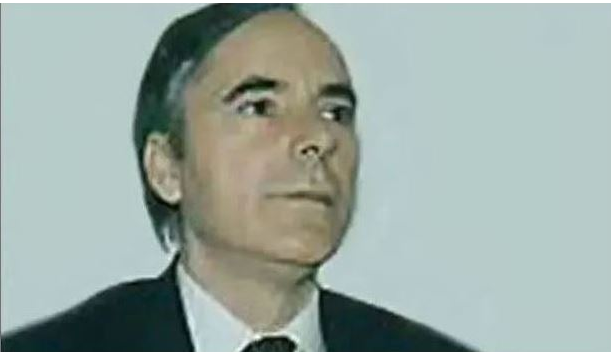
Barometri diplomatik
– Gjithashtu, kryeministri Albin Kurti është edhe njohës dhe mëkëmbës brilliant i doktrinës së diplomacisë preventive të Kartës së Kombeve të Bashkuara (1945-2024), sepse vetëm në këtë kontekst e sheh perspektivën dhe ardhmërinë e bashkësisë së sotme ndërkombëtare, që me mjete dhe me veprime aktive paqësore të zgjidhen kontradiktat dhe problemet e ndryshme brenda aktorëve të saj relevantë, që garantojnë qëndrueshmërinë, bashkëpunimin, sigurinë kolektive paqësore, zhvillueshmërinë dhe mirëqenien e përgjithshme të mbarë njerëzimit, duke përjashtuar politikën e forcës si “mjetin e vetëm” në procesin e veprimit dhe të transformimit të bashkësisë së sotme ndërkombëtare.
Mirëpo, me gjithë njohjen e gjithanshme të sistemit të marrëdhënieve politike ndërkombëtare imponohen dy procese thelbësore që paralelisht zhvillohen, duke ndikuar dhe, duke e plotësuar njëri në tjetrin , si dhe, njëkohësisht, duke e ndërtuar tërësinë e marrëdhënieve ekonomiko-shoqërore, politike, juridike dhe diplomatike, që ne e quajmë sistem pozitiv juridik të marrëdhënieve ndërkombëtare.
-Sado që liderët e zgjuar me kapacitet të nevojshëm politik, diplomatik dhe juridik etj. të kenë aftësi për t’i kuptuar, zbatuar dhe interpretuar këto sfera në dobi të inetersave të vendeve të tyre, këto varen pikësëpari nga shkalla e zhvillimit ekonomiko-shoqëror të bashkësisë ndërkombëtare.
Kryeministri Albin Kurti është kryelideri më i ditur, më parimor, më i vendosur, më demokrat dhe më vizionar e paqësor proamerikan dhe proevropian perëndimor !
– I cili mbron me fanatizëm konsekuent sovranitetin dhe pavarësinë e Kosovës, si dhe interesat e tjera komplementare strategjike dhe gjeopolitike të Amerikës dhe aleatëve të saj evroperëndimor në Ballkan. -JO të Serbisë dhe të Rusisë në Ukrainë dhe në Kosovë, përkatësisht në Ballkan e më gjerë në Evropë.
*** Kryeministri i Kosovës, Albin Kurti:-“Duam paqe dhe bashkëpunim me fqinjtë, jo konflikte e as luftëra” ! MIrëpo, kjo nuk varet vetëm prej nesh, pra vetëm prej Kosovës demokratike.
-Duhet theksuar se, edhe në dy agresionet ilegale të Serbisë ndaj Kosovës: (1) Banjska, më 24 shtator 2023 dhe Kanali “Ibër-Lepenc” në Vara të Zubin Potokut, më 29 dhjetor 2024 (që kishin për qëllim fillin e luftës mes Kosovës dhe Serbisë), triumfoi parimi dhe objektivat strategjike të diplomacisë preventive paqësore të doktrinës së ish-sekretarëve të përgjithshëm të OKB-së: Dag Hamarsheld, Butros Butros Gali dhe Koffi Annan, të cilët në kohë të ndryshme të veprimit të OKB-së ( vitet ’50, ’60, ’70 , ’80 e ’90 të shekullit XX) për parandalimin dhe për zgjidhjen e problemeve në sistemin bipolar të marrëdhënieve politike ndërkombëtare, sidomos gjatë luftës së ftohtë midis dy superfuqive botërore (SHBA dhe BRSS), hartuan dhe zbatuan parimet e rregullat e doktrinës dhe praktikës së diplomacisë preventive.
Këtë filozofi të politikës preventive paqësore të OKB-së e ndoqi edhe diplomacia preventive largpamëse e qeverisë më demokratike dhe paqësore e kryeministrit, strategut Albin Kurti, i cili triumfoi mbi diplomacinë antishqiptare alla serbo-ruse ballkanike, e cila përmes 2 agresioneve ilegale të fallangave mercenare subversive në Banjskë ( 24 shtator 2023) dhe në Kanalin “Ibër-Lepenc” të fshatit Varragë të Zubin Potokut tentoi të provokojë konfliktin e armatosur në Kosovën e pavarur dhe sovrane (17 shkurt 2008).
Mirëpo, biri i madh i Ismail Qemalit, Albin Kurti dhe miku e partneri lojal strategjik i Amerikës , i NATO-s dhe i 22 vendeve anëtare të BE-së, minus Spanjës, Rumanisë, Qiprosë dhe Sllovakisë, ia arriti që këto 2 agresione ilegale të luftës speciale serbo-ruse (që kishin për qëllim jo vetëm destabilizimin e rendit, të sigurisë dhe të paqes në Kosovë, por edhe përflakjen e saj në terrorin dhe në gjenocidin e Serbisë së Slobodan Milosheviqit) t’i paralizonte me sukses, duke falënderuar forcave speciale policore të Kosovës, si dhe bashkëpunimit të ngushtë me partnerët ndërkombëtarë (Amerika dhe NATO).
“Aleanca e Shenjtë” serbo-ruse dështoi në Veriun e Kosovës !
Duke qenë se kryeministri Albin Kurti me diplomacinë e hollë vizionare e paqësore e “futi në xhepin e vogël” diplomacinë antishqiptare alla serbo-ruse ballkanike ,ngase e zbrapsi nga djegja e Kosovës në dy aktetet agresive ilegale: (1) Banjska, 24 shtator 2023 dhe (2) kanali “Ibër-Lepenc” në Varaga të Zubin Potokut, më 29 dhjetor 2024.
S’ka fjalë se, diplomacia e Kurtit triumfoi mbi diplomacinë antishqiptare alla serbo-ruse ballkanike
Së pari, diplomacia preventive paqësore e Albin Kurtit “futi në xhep” diplomacinë hibride agresive të presidentit Aleksandër Vuçiq dhe të alleatëve të tij rusë dhe rusofilë, të cilët katër vjet rresht bashkëpunuan ngusht për të përmbysur qeverinë demokratike dhe paqësore të drejtuar nga Albin Kurti. Mirëpo, fal strategjisë së diplomacisë preventive të kryeministrit Albin Kurti, të gjitha përpjekjet dhe veprimet e politikës së kërcënimit dhe të përdorimit të forcës së projektuar, financuar, mbështetur nga regjimi kolonial dhe militarist i Serbisë. jo vetëm verbalisht në masmedia të ndryshme serbe dhe të huaja, por edhe përmes së aksioneve të luftës speciale subversive të ndërhyrjes në punë të brendshme të Kosovës.
Diplomacia preventive paqësore e Albin Kurtit “futi në xhep” diplomacinë hibride agresive të presidentit Aleksandër Vuçiq !
Paralizimi dhe bllokimi i Dialogut të Brukselit, është meritë e diplomacisë së Albin Kurtit. Ndryshe , tani në Kosovë do të kishim një “ republikë të vogël serbe” sikurse “republikën serbe të Bosnjës”, ku sipas këtij modeli të zgjerimit të Serbisë së Madhe, do të vinte në shprehje asgjësimi i shtetit të pavarur dhe sovran të Kosovës, duke e ndarë dhe copëtuar në kantone dhe në “zadruga” të ndryshme nën kapuçin kolonial dhe hegjemonist të Serbisë së Nikola Pashiqit, të Slobodan Milosheviqit dhe të batakëve të tyre filoserbë.
Mirëpo, këtë “kënaqësi” dhe këtë “idil” për rikthimin dhe, për fuqizimin e Serbisë së Madhe në Kosovë, duke u bazuar në “gurthemelin” e “Zajednicës serbe), STRATEGJIA PREVENTIVE KOMBËTARE DHE NDËRKOMBËARE E KRYEMINISTRIT ALBIN KURTI, E VARROSI PËRGJIRTHMONË, DUKE MOS E LEJUAR TË FORMOHET NË TRUALLIN E KOSOVËS SHQIPTARE.
Pse të mos thuhet se kjo strategji triumfuese e kryeministrit patriot, të ditur, të guximshëm dhe largpamës në mbrojtjen e interesave jetike-vitale të shtetit të pavarur dhe sovran, ishte SHKAKTARI KRYESOR, pse tandemi ndërmjetës i Dialogut të Brukselit (2011-2024) Borell-Lajçak i propozuan BE-së që Kosovën ta fuste nën sanksione ndërkombëtare, gjoja në emër të “mosbashkërendimit të mjaftueshëm me faktorët evropianë ndërkombëtarë (kuinti).
Mirëpo, kjo akuzë politiko-propagandistike e ndikuar nga pala negocuiese serbe, e kryesuar nga presidenti i Serbisë, Aleksandër Vuçiqiq, nuk kishte kurrfarë baze ligjore juridike, as kushtetuese e as evropiane ndërkombëtare, sepse kryeministri Albin Kurti bashkëpunonte ngusht me partnerët e Kuintit, me NATO-n dhe me Amerikën për mbrojtjen e rendit, të ligjit, të Kushtetutës, të sigurisë, të stabilitetit të shtetit të pavarur dhe sovran të Kosovës nga çdo akt dhe përpjekje agresive të Serbisë në cenimin e sovranitetit territorial dhe shtetëror të Kosovës.
Për zbatimin e kësaj startegjie preventive në mbrojtjen e sovranitetit të Kosovës, askush nuk ka të drejtë që Kurtin dhe qeverinë e tij, ta vërë nën sanksione ndërkombëtare, ngase ligjërisht (sips Kartës së OKB-së dhe parimeve të së drejtës ndërkombëtare) nuk përbëjnë kurrfarë vepre penale ndërkombëtare,por in medias res janë në përligjjen e Kartës së OKB-së, të Dokumentit Përfundimtar të Helsinikit të OSBE-së (1975), të konventave, të marrëveshjeve, të protokolleve dhe të rezolutave e të deklaratave të OKB-së në mbrojtjen e së drejtës së vetëvendosjes dhe të shkolonizimit të popujve dhe vendeve të kolonizuara.
Nuk ka asnjë dilemë se, kryeministri i qeverisë së Kosovës, Albin Kurti gjatë mandatit 4-vjeçar (shkurt 2021 – dhjetor 2024) me sukses ka menaxhuar qeverisjen e krizave politike ekzistuese në Kosovë në bashkëpunim dhe në dakordim me diplomacinë ndërkombëtare të partnerëve tanë evropianoperëndimorë.
Tanimë Dialogu i Brukselit dhe “Zajednca” kanë falimentuar, me gjithë kontaktet sporadike të kryenegociatorëve në Bruksel me Borellin dhe me Lajçakun
-Dy nga problemet më të mëdha, që paraprakisht me dhjetëra vite e rëndonin politikën qeverisëse të Kosovës ishin : (1) Luftimi kundër korrupsionit mafioz shtetëror dhe (2) Bllokimi i “Srpska zajednicës” së “Listës serbe, që me çdo kusht dhe, me ndihmën ndërmjetësuese të emisarëve të BE-së, Josep Borell dhe Mirsolav Lajçak, donin ta formomin në Kosovë. Mirëpo, kryeministri Albin Kurti ia arriti, që me diplomacinë e tij të mprehtë strategjike të nivelit sipran të Henry Kisinxherit në mbrojtjen e interesit nacional dhe shtetëror, që ta bllokonte edhe strategjinë dhe taktikën diplomatike serbomadhe (të favorizuara nga ndërmjetësit e BE-së, Borell dhe Lajçak), si dhe të mbështetura nga Moska e Vladimir Putinit dhe e Sergej Lavrovit.
-Kështu, strategjia diplomatike e Albin Kurtit “ Ia futi dy këmbët në një këpucë” Serbisë dhe aleatëve të saj serbo-rusë, duke bllokuar aksionet terroriste ilegale paramilitare dhe policore në përpjekjet për të ndezur luftën në Kosovë, me qëllim të asgjësimit të Republikës së pavarur dhe sovrane të Kosovës (17 shkurt 2008).
Pse deri tani OKB-ja dhe BE-ja nuk i ndëshkuan ndërhyrjet agresive të Beogradit në punë të brendshme të Kosovës ?
-Veç ndërhyrjeve të tjera kërcënuese të Serbisë kolonialiste dhe militariste në territorin e Republikës së Kosovës (2000-2024), edhe këto dy agresione: (1) Agresioni direkt i armatosur kundër Banjskës me më shumë se “30” terroristë ilegalë policë e paramilitarë serbë të pajisur me shumë municion dhe me arsenal të armëve të ndryshme, sulmuan Banjskën, më 24 shtator 2023, si dhe (2) Më 29 nëntor 2024, një grup ende i paidentifikuar terroristësh serbë sulmuan kanalin “Ibër-Lepenc” në fshatin Varaga të Zubin Potokut. Mirëpo, të dy këto aksione agresive të Serbisë u shmangën, para së gjithash, duke në saje të strategjisë vizionare , të përgatitjes së lartë profesionale ,të guximit dhe të gatishmërisë për të vepruar në terren kundër formave dhe taktikave të luftës speciale të forcave policore të sigurisë, paramilitare dhe militare të Serbisë së Aleksandër Vuçiqir (president), të Ivica Daçiqit, të Aleksandër Vulinit, të Ana Bërnabiqit…etj.
Për sukseset e diplomacisë preventive mbrojtëse të kryeministrit aktual, Albin Kurti flasin edhe këto fakte të veprimtarit politik, Luan Gacaferit (pjesëtar i Partisë “Guxo”),dhënë gazetës “Bota Sot”, 3 dhjetor 2024:” Se djali i kombit (Albin Kurti – M.H.) e shporri dinarin serb në Kosovë, shporri targat e Millosheviqit në Kosovë, shporri zgjedhjet serbe në Kosovë, shporri kriminelët terroristë serbë nga Kosova, e shporri Milan Radoiçiqin nga Kosova dhe krejt në fund Djali i Kombit e çliroi Kosovën pas 22 vitesh cep më cep.” (“Bota Sot”, 3.12.2024).
Në vend se me këto të arrira të politikës dhe të diplomacisë preventive të Henry Kisingerit të Kosovës, të mburrej çdo shqiptar si brenda, ashtu edhe jashtë saj, del një Lutfi Hazir i LDK-së atje në Gjilan, dhe hiq më pak, (një qeveri të tillë të sukseshme demokratike parlamentare dhe paqësore shqiptare, të udhëhequr nga “Biri i Kombit” siç e ka quajtur me të drejtë z. Luan Gacaferi) e ka quajtur : “Regjim” !?
Ky ka deklaruar sa e sa herë, se në negociatat serbo-shqiptare në Vjenë për Kosovën, të drejtuara nga emisari special i OKB-së, Marti Ahtosari, i “kanë bërë koncesione të dhimbshme Sersbisë”.
-Po, kjo është më se e vërtetë, sepse Lutfi Haziri me grupin e tij, pikësëpari kanë “decentralizuar” (kanë copëtuar) territorin e Kosovës, duke e shndërruar në komuna serbe dhe në”srpska zajednica” me shumicë serbe. Çdo fshat serb e kanë bërë komunë serbe nga frika e humbjes së pushtetit dhe nga “thupra” e faktorëve ndërkombëtarë. Kështu pa kurrfarë dhembjeje kanë copëtuar serbizuar territorin autokton shqiptar të Kosovës. Veç kësaj, ai fare grupi fatkeq ka bërë krim sui generis,duke shkelur të drejtën historike dhe të drejtën e vetëvendosjes së shqiptarëve, duke qenë se veç “komunomanisë” serbomadhe të enklavave dhe të eksklavave,kishave dhe manastireve serbe në Kosovë iu kanë falur me qindra hektarë tokë me të drejtë ekstraterritorialiteti (sikurse ato të kishin pasur statusin e jurisdiksionit të ambasadave të huaja në territorin shtetëror e Kosovës) !?
Ky është injoranca dhe tradhtia e tyre ndaj interesit të përgjithshëm të kombit shqiptar dhe Kosovës së Shqipërisë Etnike. Sikur të kishte pasur shtet të mirëfilltë, “Luta” me të gjithë “lutanët” e tjerë, të cilët me “Planin e Marti Ahtisarit” e kanë copëtuar territorin e Kosovës, do të duhej të kishin qenë të të gjithë në burg për veprat e tyre penale-tradhti ndaj kombit dhe ndaj shtetit të Kosovës. Këtyre fare “lutanave” nuk duhet hedhur kurrë votën, sepse asgjë të mirë popullit dhe Kosovës nuk i kanë sjellë veç shfrytëzimit , mashtrimit dhe vafrërisë, papunësisë, burgosjes dhe vrasjes masive nga regjimi çetniko-fashist gjenocidal i Slobodan Milosheviqit! KY ishte “regjim” i Slobodan Milosheviqit, jo qeveria demokratike parlamentare dhe paqësore e Albin Kurtit, e cila disa herë brenda mandatit të saj e shpëtoi Kosovën nga agresioni dhe terrori i regjimit të Aleksandër Vuçiqit (2012-2024).
Mirëpo, shihet se, edhe pas 30 vitesh ky “qatip në politikë” nuk di ta bëjë dallimin mes këtyre dy koncepteve asimetrike për nga përmbajtja e tyre: “qeveri demokratike” dhe “regjim vrastar kriminal-mafioz-gjenocidal” !?
S’ka rezon vazhdimi i Dialogut të Brukselit pa vënien nën sanksione ndërkombëtare të Serbisë për shkak të ndërhyrjeve agresive në Kosovë.
Urgjentisht, Serbia agresore dhe ndërhyrëse në çështjet e brendshme të Kosovës (2000-2024), të vihet nën sanksione ndërkombëtare !
– O, shpërthimi i luftës në Kosovë është vetëm “çështje orësh” të dakordimit të marrëveshjes Vladimir Putin-Aleksandër Vuçiq !
– -Çdo vonesë e ndërmarrjes së diplomacisë preventive për sanksionimin e Serbisë sipas Kartës së Kombeve të Bashkuara (KREU VII, Veprime në rast të rrezikimit të paqes, të prishjes së paqes dhe të kryerjes së një akti agresioni : Neni 39,40, 41 dhe 42)/ Karta e OKB-së, 1978, f.35-37/, mund të përfundojë me fatalitet për shtetin e pavarur të Kosovës, ashtu sikurse invadimi i Ukrainës nga agresioni i Rusisë së Putinit.
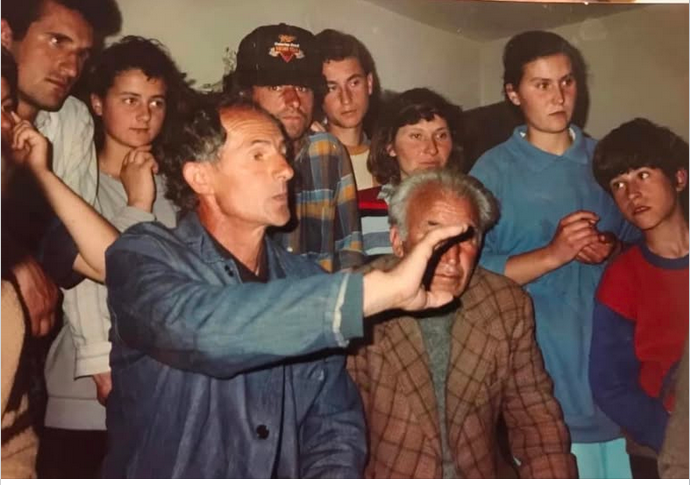
Në mjediset e Universitetit të Shkodrës u mbajtën sot nderime për profesor Sami Repishtin, i cili u nda nga jeta pak ditë më parë në Shtetet e Bashkuara të Amerikës, ku emigroi në vitin 1962 pasi i mbijetoi burgjeve të regjimit komunist në Shqipëri. Siç njofton korrespondenti i Zërit të Amerikës, Pëllumb Sulo, gjatë ceremonive të nderimit u vlerësua kontributi i profesor Repishtit në mbrojtje të të drejtave të shqiptarëve, lirisë dhe demokracisë.
Qytetarë, studiues dhe autoritete vendore morën pjesë sot në nderimet që ju bënë profesor Sami Repishtit në mjediset e Universitetit të Shkodrës. Duke hapur ceremoninë, rektori i Universitetit, profesor Tonin Gjuraj, tha se në kohën e sotme, kur shqetësimet për Botën dhe Shqipërinë janë të shumta, largimi nga kjo jetë i një mendimtari të madh si profesor Sami Repishti shënon një humbje të madhe. Jeta dhe vepra e tij, shtoi ai, janë një pasuri e madhe për brezat e sotëm dhe ata që do vijnë.
Si profesor në universitetet amerikane dhe aktivist për të drejtat e shqiptarëve ai punoi pa pushim për t’i dhënë zë çështjes shqiptare. Themelimi i Këshillit shqiptaro-amerikan dhe dëshmia e tij para Kongresit tregojnë përkushtimin e tij për të mbrojtur dinjitetin dhe drejtësinë. Përmes veprave të tij si “Pika Loti” dhe “Nën hijen e Rozafës” profesor Repishti na la dëshmi të fuqishme për vuajtjet dhe qëndresën njerëzore duke ruajtur një dritë shprese në errësirën e padrejtësive”
Ndërsa ish drejtori i bibliotekës publike “Marin Barleti”, Maxhid Cungu, tha se me veprën e tij, Sami Repishti mbajti gjallë frymën e lirisë dhe të dinjitetit njerëzor.
“Sami Repishti ishte një emër që do të mbetet gjithnjë i paharruar, një shembull i guximit dhe vendosmërisë përballë dhunës dhe padrejtësisë. Ai i ka dhënë kombit shqiptar një pasuri të paçmuar me veprat e tij duke mbajtur gjallë frymën e lirisë dhe të dinjitetit”.
I pranishëm në nderimet e sotme ishte edhe neurokirurgu i njohur, doktor Mentor Petrela, i afërm i profesor Repishtit.
“Kontribut më të madh, se ç’ka dhënë për demokracinë në Shqipëri dhe për lirinë në Kosovë, mos ta harrojmë kurrë këtë, nuk e ka shqiptar tjetër në këtë shekull”.
Nderimet e sotme për Sami Repishtin u organizuan nga Universiteti i Shkodrës dhe familjarë të profesor Repishtit. Mbesa e tij, Ardita Repishti, tha se axha i saj ishte dëshmues i egërsisë dhe errësirës së dy regjimeve totalitare, e megjithatë ai prap përcillte dritë, urtësi dhe tolerancë.
“Si opozitar i përhershëm konstruktiv, i mbijetuari i burgjeve dhe kampeve me punë të detyruar, i kampit të Maliqit, Bedenit, Aeroportit të Rinasit, etj. kundërshtonte diskriminimin dhe hakmarrjen. Standarti që vuri axha është shumë i lartë. Ai thoshte: Nuk mund të jem si ata që më torturuan, përndryshe nuk kam asnjë dallim. Kësisoj ata kanë fitu ndaj meje. Ata më burgosën trupin, por mendja ishte gjithnjë e lirë. Kështu fitova”.
Me veprën dhe personalitetin e tij, profesor Sami Repishti u bë një zë i besueshëm për shqiptarët në mbarë botën. Gjatë gjithë jetës së tij ai shfaqi angazhim të palëkundur për të mbrojtur dhe promovuar të drejtat e njeriut dhe qeverisjen demokratike në Shqipëri, Kosovë, Maqedoni, Çamëri dhe Mal të Zi.
Profesor Sami Repishti ndërroi jetë në moshën 99 vjeçare, më 27 nëntor, në SHBA ku emigroi në vitin 1962 pasi i mbijetoi burgjeve të regjimit komunist në Shqipëri.
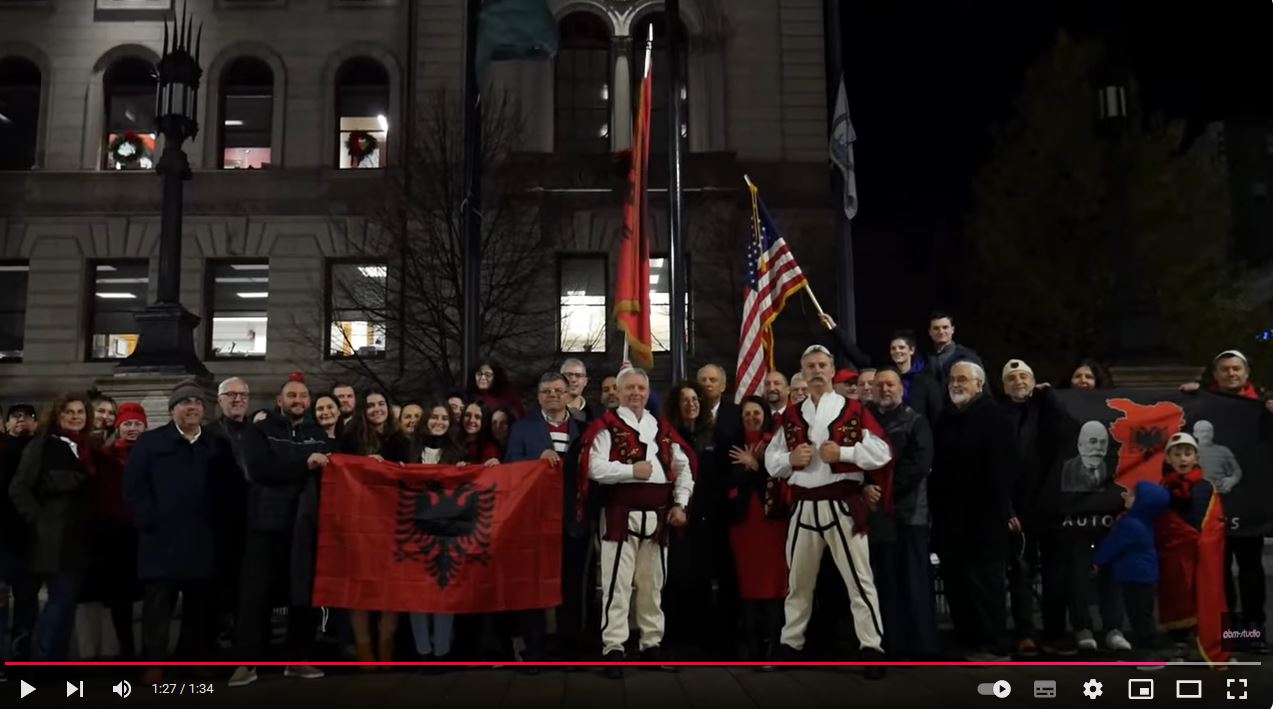
Gazetari Ardian Murraj na ka sjellë këtë reportazh nga ngritja e Flamurit në Worcester një traditë që përcillet për çdo vit nga brezi në brez.
Ngritja e Flamurit me rastin e 28 Nëntorit 2024 në New York.
Valoftë në shekuj e milenarë!
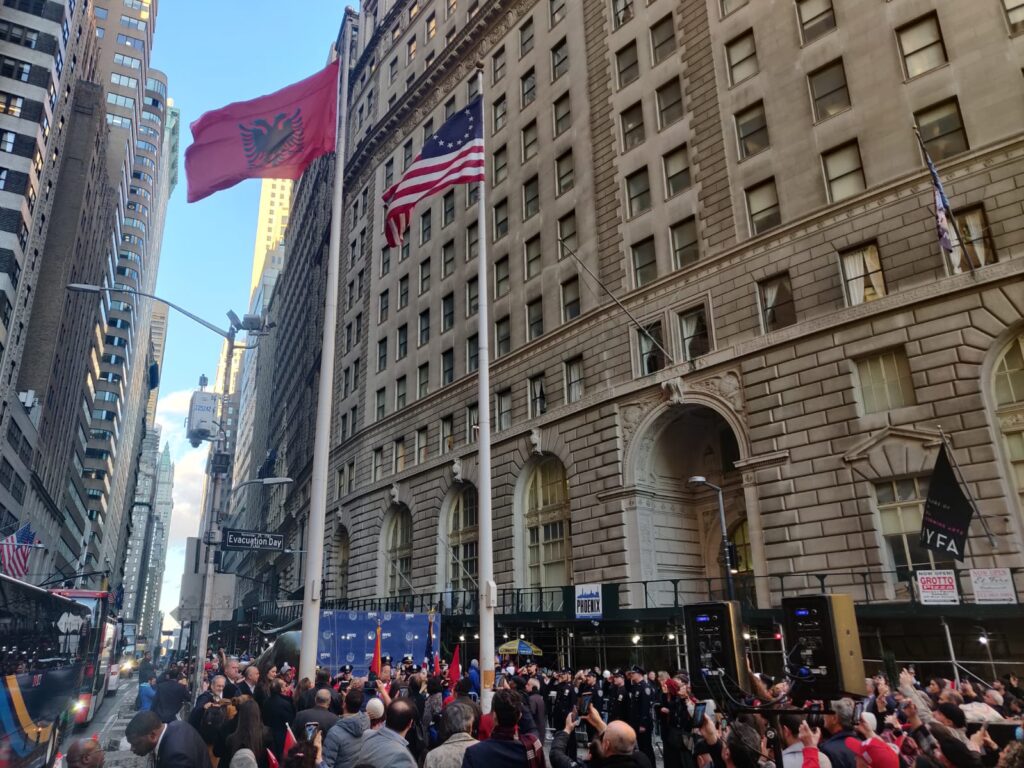
 Ju tregoj për takimin me Parashqevi Simakun në New York Nga Elida Buçpapaj
Ju tregoj për takimin me Parashqevi Simakun në New York Nga Elida Buçpapaj
 Shtëpia e Bardhë publikon strategjinë për luftim të urrejtjes kundër myslimanëve dhe arabëve
Shtëpia e Bardhë publikon strategjinë për luftim të urrejtjes kundër myslimanëve dhe arabëve
 Zbardhen përgjimet- Operacioni italian që zbardhi lidhjet e ngushta të ‘Ndragheta-s’ me lejet e ndërtimit të dhëna në Tiranë- Nga Alba Kepi
Zbardhen përgjimet- Operacioni italian që zbardhi lidhjet e ngushta të ‘Ndragheta-s’ me lejet e ndërtimit të dhëna në Tiranë- Nga Alba Kepi
 Në Lëbushë të Deçanit me nderime të larta varroset Mr.Sc. Rexhë Sadriaj, edukator i shumë brezave në shkollat e Kosovës- Nga ARIF EJUPI
Në Lëbushë të Deçanit me nderime të larta varroset Mr.Sc. Rexhë Sadriaj, edukator i shumë brezave në shkollat e Kosovës- Nga ARIF EJUPI
 Kudo qofsh Parashe, ti je bije e këtij vendi, kavajësja artiste simpatike, bilbil i këngës së festivaleve- Nga GAZMEND MULLAHI
Kudo qofsh Parashe, ti je bije e këtij vendi, kavajësja artiste simpatike, bilbil i këngës së festivaleve- Nga GAZMEND MULLAHI
 INATI E JEHONA- Poezi humoristike nga ANDREA ZALLI
INATI E JEHONA- Poezi humoristike nga ANDREA ZALLI
 Përse parlamenti shqiptar shkel Kushtetutën për zgjedhjen e Avokatit të Popullit- Nga Lavdie Nela
Përse parlamenti shqiptar shkel Kushtetutën për zgjedhjen e Avokatit të Popullit- Nga Lavdie Nela
 Zbulohen dokumentet e panjohura arkivore, me fotot dhe akt-ekspertizën e Mehmet Shehut
Zbulohen dokumentet e panjohura arkivore, me fotot dhe akt-ekspertizën e Mehmet Shehut
 Fillon falimentimi i fasonit në Shqipëri, bien indekset e punësimit dhe pagave!
Fillon falimentimi i fasonit në Shqipëri, bien indekset e punësimit dhe pagave!
 “Vrasja e djalit tonë nuk po zbardhet qëllimisht” Ish-oficeri i policisë komenton letrën e prindërve të Martin Canit
“Vrasja e djalit tonë nuk po zbardhet qëllimisht” Ish-oficeri i policisë komenton letrën e prindërve të Martin Canit
 Letra e prindërve të Martin Canit për Ambasadën e SHBA dhe institucionet shqiptare- Klodiana Lala: Kërkojnë nga diplomatja amerikane të monitorojë procesin hetimor pasi…
Letra e prindërve të Martin Canit për Ambasadën e SHBA dhe institucionet shqiptare- Klodiana Lala: Kërkojnë nga diplomatja amerikane të monitorojë procesin hetimor pasi…
 Sot Dita Botërore e Emigracionit, Shqipëria ka bilancin më negativ në histori- Nga Alba Kepi
Sot Dita Botërore e Emigracionit, Shqipëria ka bilancin më negativ në histori- Nga Alba Kepi
Botues:
Elida Buçpapaj dhe Skënder Buçpapaj
Moto:
Mbroje të vërtetën - Defend the Truth
Copyright © 2022

Komentet